|
Okay, I’m going to say it. The holidays make me uneasy. I don’t come to this conclusion without experience. I have 5 children. I have 9 grandchildren. I have lost count of gifts and dinners and the times I've stood in line two days before Christmas, the coveted toy in my hands, the smirk on my face for having found said toy. But underneath I felt a fraud. The clamor for gifts, the craziness of consumerism, have always unnerved me. I am not a shopper, wear the same jeans, put my tee shirts on inside out, and consider comfort before fashion. I like the newest electronic for what it does, not for what it signifies. This doesn't make me holy; it makes me slightly out-of-step. For the holidays, everything has been pre-packaged and handed to us as if it’s been ordained. Yet these are holidays we create, these are pressures we endure, and most of the time without thinking too deeply why. Each year I try to simplify and each year I’m reminded that simplifying means being left out, because the world around me isn't interested. The forced happiness from Target commercials to family expectations wearies me. If we come to joyfulness through the normal channels, then so be it. To be coerced into a false joyfulness is unfair. We have all been indoctrinated to the point we don’t know which ideas are ours, and which ones we are reenacting because we feel we should. This applies to writing as well. If I am compelled to write about the oddly marked seagull that lagged at the back of the flock, the writing is better. If I write about the seagull because I think something outside of me requires it, the writing is dry like cardboard in my mouth. Thinking of where a piece might be posted before it’s even written is damning my work to mediocrity. To the sameness we go to writing to avoid. As we wade through the holidays, it is good to ask ourselves what we expect. And when we look back, was the experience, the gift, the meal, ever what we imagined? Like opening that first package of books, the ones with my name on the front, the disappointment is not often spoken of. I’m not advocating mutiny. I am advocating thoughtfulness, compassion, and less greed. And acceptance of that friend or relative who is not comfortable with the often-forced holiday mood. That person might be in the process of becoming real. Allow them their space. Possibly it isn't the holiday that makes me uneasy, but the expectations around the holiday. And as much as I’d like to be included, there is an equal pull to be true to myself. In life, as in writing, being an outsider is rarely a choice. The world is changing though; people are becoming more honest, like The Velveteen Rabbit, more real. If we choose not to participate, we will deal with the fallout, but we will have chosen for the right reason, and that in itself is something to celebrate.
0 Comments
We are all guilty of hubris, that confident knowing that turns out to be pure ego. Hubris is the quality we note in others, while ignoring it in ourselves. Hubris is also our great embarrassment when we are fall flat on our face into our own ignorance and clumsiness. In all things I am overly sure of myself, then completely stymied by my own ignorance. It is a Gemini trait, jumping in and then paddling back to the side of the pool as quickly as possible. These past few weeks I've done an awful lot of paddling back, and then clinging to the side of the pool. My daughter's wedding drew us into the woods of Oregon. Two weeks of getting ready and being immersed in the set-up and break-down of a wedding held at the end of two miles of dirt roads. It was beautiful, she was beautiful. And I was kind of useless, having cracked a rib on the drive from Colorado to Oregon. Instead of lifting tables and chairs, instead of feeling helpful, I was more of an observer. I could watch the small children, but physically there was little else I could do. This down time, which was really chaotic and filled with people and bottomless activity, was a particular kind of purgatory for me. I like physical labor, I like helping in a concrete way. I was forced to watch everyone else work, which forced me to look more deeply at myself. I thought a lot about contributing, how each of us has our own way of being in the world, of giving back. I suspect writers give back with their words, their intimate feelings shared with strangers, and I have recently decided that it's time to return to my own work with a greater seriousness. On the drive home, I thought of ways to expand the amount of time spent on writing and submitting my poetry. I made lists. When we got home, I immediately got sick with a terrible head cold. For the past week I've been useless still again, at the mercy of my body, which hasn't cared about print jobs or deadlines or emails stacking up in my yahoo accounts. Now that I've come out of the fog a little, I remember my last blog post about Whitman's body electric. How humbling to go from the high of acknowledging the senses to laying flat on my back watching seven episodes of a British televisions series, The State Within, in case you're wondering, back to back to back. My projects have suffered, my editing jobs stalled, as well as all tiger's eye projects. I have had to literally wipe off my desk and begin again. I am humbled in the face of my own hubris, as well as my body's needs. Walt Whitman would understand, I'm sure. 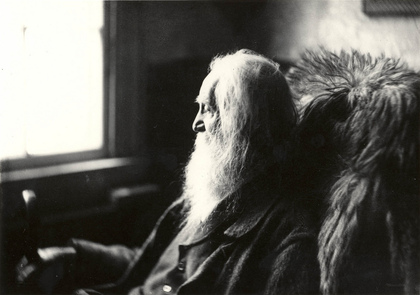 O I say these are not the parts and poems of the body only, but of the soul, O I say now these are the soul! I Sing the Body Electric, Walt Whitman St. Augustine is often blamed for creating the concept of a body/mind-soul split, and much of Western thinking is based on this idea. The Psalmist's, For I am fearfully and wonderfully made, seems to have given way to I am fearfully made. Walt Whitman helped in sewing the soul back into the weft of the body with his words, yet we continue to struggle with the supposed separation. I sing the body electric, The armies of those I love engirth me and I engirth them, They will not let me off till I go with them, respond to them, And discorrupt them, and charge them full with the charge of the soul. Was it doubted that those who corrupt their own bodies conceal themselves? And if those who defile the living are as bad as they who defile the dead? And if the body does not do fully as much as the soul? And if the body were not the soul, what is the soul? If we are lucky, our bodies demand we get out of our heads and heed the ache and passion of living. It may be an illness that takes us from our head space and into our fragile body. Or an accident. Maybe falling in love is the key, the tipping point between intellectualism's dry company and the body's wonderful letting go. Poets are advised to appeal to the senses. Work with ideas if you must, ideals and political leanings, but nothing will capture the reader like a well-placed image or scent, the remembrance of a taste brought forward. Cut through the radish skin, red reveals white, slight moisture on your fingers, bitterness on your tongue. Today I am dwelling in scent/ sight/ sound/ taste/ touch. Today I am dwelling in the body electric. 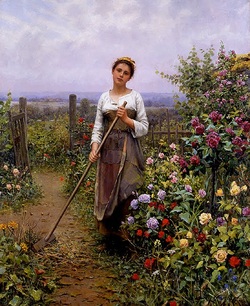 The pink roses were in bloom but the excess canes had grown too tall and brittle, so I decided to create order from the chaos. An hour later, as I simultaneously kept three small boys from running down the driveway or falling down cement stairs, I realized that raising anything, flowers or children, takes much longer than we anticipate. The roses are mine, the children are not, but the memory of raising my own came back with unexpected force. Along with the physical memory of gardening. We've been living in apartments for years, and one of the things I've missed is digging in the earth, getting my hands dirty, creating a garden that was once only lines drawn on paper. Our new home has two mature rose bushes that lean against the old metal garden shed. As I cut back cane after cane, my skin torn by thorn tips, sweat covering my body, I finally gave up on the dream of creating any semblance of perfection. I remembered what gardening feels like, how time stalls while you dig or cut or transfer, and how as the early moon shows itself high in the sky, you really haven't done half of what you'd planned. A friend is new to writing fiction. She mentioned that she was surprised by the paltry amount of pages she had at the end of the day. I remember the moment I felt the same disappointment, after writing and writing and writing, I had accumulated just a few pages of action and dialogue. Pages that still needed editing. This is why I'm primarily a poet, and rarely a fiction writer. What I came away with yesterday was an appreciation for good parents. And for gardeners, good or otherwise. For anyone who is willing to wait long months for an unpredictable outcome. This includes poets . . . Poems, like rose buses, are trimmed to nothing, they recover and grow in spite of us, and then we cut them back again. Once in awhile we are handed a poem from some mysterious source, the muse or Lorca's duende. Ta-da, there it is, fully fleshed-out and ready to show off. Most of the time there are lines that come together awkwardly, words that need reconsidering, and until it feels finished, its fate is as unknowable to us as child-raising or growing roses. The poem may turn out to be a brat or a dry cane with nothing but thorns. Physical labor brings out something in me that otherwise lies dormant, my creative drive. When I hike or ride a bike, when I play with children or pull weeds, I'm afterwards drawn to their opposite. To be physically active, even exhausted, is to later be quiet and still, open to subtle impressions that suddenly enliven my thoughts. Summer is more than being miserably hot or drinking endless iced coffees. It is about establishing a balance between the physical and the mental. Doing and being. Possibly it is why I keep hearing from writers who are once again writing. Instead of long slumbering winters where their words lay dormant, they are forced outside to participate in gardens and playgrounds, to be more physically engaged with the world. These captivating paintings are by Daniel Ridgeway Knight, http://www.danielridgwayknight.org. I love how he's made gardening, in long skirts even, look enticingly attractive. His biography says he liked to paint peasant women. Just the idea fascinates. Did the peasant women enjoy being painted? Quite possibly they did. Although many of his subjects were posed, others appear to be working or resting after work, their hair askew, faces slightly weary. I especially like this woman lost in thought among the flowers. What are her thoughts after a day of working with flowers? Who or what is on her mind? Summer is my least favorite season, but I am finding it is exactly what the body desires. Heat, a garden to tame, and long evenings with a stack of poems to consider. It will take time to finish these individual poems, they definitely need pruning. Their development into something worthwhile will take longer than I imagined. Their outcome is unknowable, but I am lost in the anticipation of what they might become.
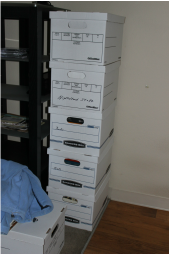 To imagine something better, to live with the subjunctive what if is to either be in heaven or hell. Would we accomplish very much if we didn't daydream and plan for something more? Or would we be more satisfied if we just accepted what is? Sitting in my third-story perch, the bright green of tree leaves waving in front of the sun, covering, uncovering the light, I consider our move a little east into a house whose ground-floor won't offer me this kind of floating above humanity feeling. It is what I've asked for, needed for a long time, a home, solid ground beneath us. Yet knowing all along that it's an illusion, a temporary salve for a restlessness I've never fully understood. I dream of ravens incessantly demanding water from an empty metal bowl, their beaks clanging against the lip. This is a verse from my latest poem, To Change a River's Course is to Never Be Satisfied. The poem is about diverting waterways, messing with what should be left to itself. But the ravens came in overhead, as they often do, and landed in the poem with their demand to be heard. I've used the verse as a refrain in order to give it import, and imagine the reader questioning its inclusion. Like the ravens, I often bang my beak against things, and like the ravens, sometimes I find the bowl empty and dry. Of late, the writing has been my metal bowl. The lack of water the lack of creative flow that used to appear without thought. I expect its return. I ask myself what if it returns. And what if it doesn't. Either way I am accepting, because I can look out the window and recognize grace. For this moment in time, there is nothing more beautiful that this green mass of quivering leaves growing darker as the sun drops behind the Rockies. The boxes are piling up, bankers boxes, the best invention for saving our backs, and much-used U-Haul boxes, broken down and re-enlivened with muscle and packing tape. My winter sweaters, fuzzy scarves, ski caps and gloves are packed. Magazines are sorted, toys and picture books, notebooks, folders, and more notebooks are boxed. In an attempt to leave out only what is necessary for the next few months, I've hesitated to tape some boxes. I told my daughter that we dream of a particular home, and yet it is getting into that home that will bring us face to face with our daily life, all of the problems and joys we had in our previous dwelling. We live a certain way in any house we inhabit. It isn't magic, it never was. But the subjunctive what if I lived in a bigger, nicer, better place haunts us. We move and move again, sometimes only metaphorically. I, like most writers, need space around me to create. Physical as well as emotional space. I look forward to the designated office, to the sun porch right outside my office, but these trees out the window, the sound of them layered from near to far, rustling in harmony, these will only be a memory. Never would I have considered missing anything about this apartment. And yet I will. I will miss the sound of these trees, their delicate pointed leaves, and I will miss their unexpected shelter. 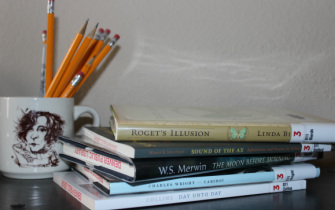 A week of travel, a few days in California, and then a few days in Oregon. This trip was about seeing family, a new baby, and the time moved too swiftly; but touching skin to skin, the tactile memory remains. The return to Denver meant an immediate birthday party, and grocery shopping for fresh produce at Sprouts. We brought back a heavy bag of bulk items that cost half as much in OR as they do in CO. We oddly stock our dry goods pantry from another state! Instead of January being the month of promises, goals set, and diets begun, April seems a month of new beginnings . . . we are planning to buy a small house, to set down semi-permanent roots in Denver. And after a week of traveling, drinking too much coffee and eating scones from the Flying J truck stop . . . it is time to consider what changes the body demands. I am trying to eat right, I am trying to walk more, I am trying to submit poetry . . . I am experimenting with floor plans and furniture layout and envisioning a yard filled with native plants. And with this season of change and experimentation comes the month of poetry. I stopped at the downtown library this morning, 45 minutes on the meter, and found poetry spotlighted both downstairs and up, and a rash of new streamlined books of poetry. They weren’t hiding in the stacks, but were displayed prominently for everyone to see. If you were unfamiliar with poetry, you might pick up one of the books just to peek at the mystery between the covers. Hopefully you'd be pulled in and held. Unable to resist, I brought a few books home from the library: Linda Bierds / Roget’s Illusion; W. S. Merwin’s / The Moon Before Morning; Charles Wright / Caribou; Martha Collins / Day Unto Day; and finally, William Stafford / Sound of the Ax. I may skim through these books or read them through, but they’re here beside me, like old friends hoping for a long conversation. I am listening to a conversation between the poets . . . Linda: You write for burnt glass William: When it’s your own pain you notice it Martha: Centered, surrounded by pines, one could forget the uncentered world Charles: Invisible, inaudible things, always something to hanker for W. S.: You with your many questions, I have none William: I will follow my experiments, even if they don’t converge with needs April, a month of change, the temperatures unpredictable, the gardens imaginary, our poetry less weighted with the darkness of winter. There is something stirring just beneath the surface. I will read the poets for clues to this stirring. And like William, I too will follow my experiments.  This is the patent age of new inventions for killing bodies, and for saving souls. All propagated with the best intentions. Lord Byron Our friends, the Afghans, not to be confused with our enemies, the Afghans, killed several American soldiers. An unexpected brutality causing the generals to allow rounds in the chambers of the guns of Guardian Angels, who react more quickly than either guardians or angels might alone. I am not being flippant. My personal history is filled with the military, father, husband, son, nephew. But I question brute force in any situation. It never ends well. But this blog is about the writing life, discerning how the writing influences an ordinary life. And vice versa. Today I'm considering intent and belief. Belief that something or someone will behave the way we expect they will, or at least hope they will. We want so badly to believe in another's good intentions. This is true of all human interaction, whether military or romantic. We have a story we've told ourselves, possibly a mythic tale, and when it is transgressed, we are angered, surprised, betrayed. This fascinates me as I've asked myself what I believe my own story is, and how my poems carry that story forward. My beliefs are in my words, a literary DNA sequencing. When I write about a river, this time it is The Willamette, I am making that river a part of my personal story. When I left that river, moved east, I left its elemental resonance, and my story of the river became a part of my mythos. Had the river jumped its banks and flooded my apartment, my story, as well as my belief about the river, would have changed. A poet friend writes obsessively about ice, about snow, about winter. When I read her work, I become colder, I want to be indoors with the heat blasting. Her personal myth developed in a way mine didn't, and I could never tell her story, because I have never felt her story. Myth begins in emotion. Intent and belief are also birthed in emotion. Have you ever been approached and told that your story or poem resonated with someone? And what a shock when they told you why, because they are nothing like you and you didn't intend the meaning they drew from your work. You may have wanted to tell them how wrong they were, but stopped when you realized this was their interpretation made within the realms of their own history, their own beliefs. A book won't become popular unless enough people can make it their own story, can feel the bow tightening in their hands, can fall through a hole and have an upside down tea party with Alice. At some point the reader has to believe. But first, the author had to believe in his or her story enough to create it. That original spark of intent bringing their images to life. We frequently misunderstand intent; this is a basis for discord, for war even. As writers, how important to tell our truths as well as we can, so misunderstandings are fewer. The ideal container for intent and belief is our writing, our literal "story telling." The container, writing, holds both gingerly, our beliefs often morphing over time, our intent softening or changing course. What we believe about someone or something determines our actions. What we believe about ourselves creates our personal mythology and our body of work. If even in summer, we cannot escape the wind and blowing snow, what we write will continue to be based in winter. And who we trust will be based not only on their behavior, but on our interpretation based on our belief about their intent. Are we killing bodies or saving souls with our words? 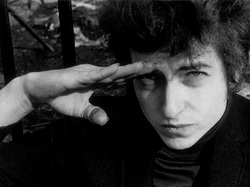 Then you better start swimmin' Or you'll sink like a stone For the times they are a-changin' Come writers and critics Who prophesize with your pen Keep your eyes wide The chance won't come again The Times They Are-A-changin', Bob Dylan Bob Dylan selling cars in a Superbowl ad means one more idol brought down to earth. No matter how many times he said “Detroit,” we all knew it was about him. The man I imagine cruising around in a VW bus has slipped several rungs down my “cool” ladder. So much of what we do is based on reacting to societal pressure. Popular culture is hard to disengage from, even without our interest, it appears daily on our phones and computers . . . we know immediately when someone has been humiliated or defamed, or if someone has accomplished an amazing feat. As poets, we must create a space deep enough for our thoughts; our quiet moments need to be subterranean deep. We may be in a coffee shop or at home, but the space inside needs simplicity, non-clutter, silence. That means less social media, less conversation, fewer texts. I’ve found myself with less interest in the internet, a few perusals of facebook a week is enough to satisfy my curiosity. Most of us post on social media the things that put us in a favorable light. If we said what we thought, if we were honest, how much better the exchange. Someone posted a quote from Charles Bukowski , People empty me. I have to get away to refill. It was not upbeat, but it was honest, and exactly the way I feel. I remember, even as a child, I could only do some much socializing, it exhausted me, and then I had to retreat to my room. I was like a run-down battery that needed recharging. I’m not advocating becoming a recluse, but in this media-hyped country, the contemplative poet needs to find ways to take care of her or himself. A poem comes from the core self, or at least it should, and if we are to protect that self, turning our phones off, disengaging from the internet, even writing in long-hand, may be necessary tricks in order to wrestle with our demons. The demons are still there, we are just too distracted to notice. I’m guessing they’re making a mess of us while we ignore them. Quiet your mind. Refill. Call out your demons. Wrestle. Otherwise you’ll be spewing the same homogenized work as everyone else, or hawking Chryslers for Detroit. 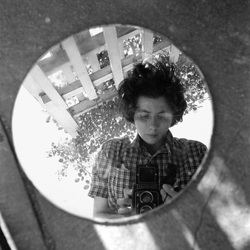 I’ve been using my camera more, using it to see the world differently, or to see my world differently. My interest has led me to research female photographers. There are the well-known photographers, Dorothea Lange, being the most documented, and Annie Leibovitz, whose latest book, Pilgrimage, was an unexpected gift from a friend. Everyone knows of her life, her lover, Susan Sontag, her story as famous as the people she photographs. Sally Mann, and Diane Arbus, with slick web sites and books filled with their work, seem hyper-aware of their place in the world of photography. Cindy Sherman and Carrie Mae Weems, are two other well-known female photographers my friend suggested I research. Then there is the mysterious Vivian Maier, who worked as a nanny, and who took thousands of photographs that almost no one knew about until after her death. John Maloof is responsible for saving Vivian Maier's work from probable obscurity. Maloof, a real-estate agent, purchased a box of Maier's unidentified negatives at a storage locker auction in 2007. It contained 30,000 of her more than 100,000 photographic negatives. The recently released documentary, Finding Vivian Maier, directed and produced by John Maloof and Charlie Siskel, traces the life of Maier and her previously unknown photographs, gives us her pieced-together history, but cannot answer the questions of why she took the photographs, why she didn't share them with others, and who this woman ultimately was. Vivian Maier did not seek recognition; her habitual photo-taking seems a personal and private enterprise. This surprises us, causes concern. In a culture where privacy is less important than self-promotion, we are suspicious of someone who is both creative and private. If what we do isn’t shared, is it real, is it important, is it even necessary? If I write a poem and never submit it, is it viable? I have always encouraged others to submit their work, to use words to inform and encourage. I believe in the importance of sharing what I create, but I also have a fierce streak of privacy. How to reconcile the need for privacy and the desire to share what I’ve learned, what I feel might inform someone else? Vivian Maier is an extreme example of the private citizen, someone who was obsessed with what we can dismissively label a hobby, a pastime, who did not seek recognition. Is she similar to my mother-in-law who cooked excellent meals but never thought to write a cookbook? Or my grandmother who rode across the country in a Model T and never thought to write a memoir afterwards? What of the poet who writes prolifically and secretly? The painter who never shows his work? I am fascinated with Vivian Maier, with the nanny who carried her camera into the seediest of neighborhoods to capture ordinary people living ordinary lives, but even more so, I'm fascinated with her enigmatic spirit. I will never know her intimate thoughts about her work, or if she loved someone besides the children she helped raise. I will never (thank goodness) read her ruminations about creativity. The only way to know Maier is to study her subjects, who and what she chose to photograph, and that is the most pure approach to art that I can imagine. Art for art's sake. Vivian Maier's work has always been viable, now it is visible. Possibly it's popularity, coming so soon after her death, is the final triumph of a very private woman. http://www.vivianmaier.com/  Talking to a friend yesterday about how our energy exists in our words after we’re gone, made me reconsider my responsibility as a poet. It reminded me of something I often forget, that what we experience is important, not only as fodder for poems, but for others who may need to hear what we have to say. Whether our poems are about love or abuse, political unrest or cultural renewal, our thoughts and the driving emotions behind them are significant. I had another blog post partially written, but the news from Nairobi, Kenya, another horrific hostage situation, dozens of people shot and killed, continued to distress me, and I was compelled to change my topic. I turned the news on this morning to find out more information, this is the third day in this unfolding tragedy, and nothing about the hostage situation was mentioned. If I’d stayed with CNN or one of the morning shows, I'm sure they would have eventually reported the current situation. Apparently it was already old news, and more telling, it had nothing to do with America. Here, in the land of constant denial, mornings are for reporting on celebrity singers and television awards, cooking tips and celebrity gossip. The superficial and sensational often trumping depth in our television reporting. As I often do, I turned to the Internet for hard news, and found a comprehensive report about the attack on the BBC site. The report mentioned that one of the fallen was the poet and political activist, Kofi Awoonor, who was attending a literary festival in Nairobi. I know little of this man, only that in recent years his writing has given way to political activism. I wonder if he was a hopeful man, if he died believing individuals can make a difference. I recall other poets, Lorca, Neruda, Akhmatova, whose lives (and deaths) were defined by the times they lived in, the countries they inhabited. This brings me full-circle to the conversation with my friend, how our poems are important, not only as legacy, but as witness. As grace. We are living in an unusually chaotic period, and what if the poets are being asked to step forward, to bend history, to become witnesses through our liminal experience of life? What if the hope hinted at in Awoonor's poem, "Across a New Dawn," is real and still possible? What if we are being asked to carry that hope forward? What if I am being asked? What if you are being asked? * Master, if you can be the oarsman for our boat please do it, do it. I asked you before once upon a shore at home, where the seafront has narrowed to the brief space of childhood We welcome the travelers come home on the new boat fresh from the upright tree --from the poem, "Across a New Dawn," by Kofi Awoonor --poem in its entirety: http://blogs.wsj.com/speakeasy/2013/09/22/read-one-of-kofi-awoonors-final-poems/ --related posts: http://bookhaven.stanford.edu/2013/09/the-face-of-a-massacre-eminent-poet-and-diplomat-kofi-awoonor-is-killed/ http://www.theguardian.com/books/booksblog/2010/dec/15/poetry-protest-politics |
Archives
October 2022
AuthorMy writing often deals with the environment, my poetry filled with allusions to natural and man-made disasters. I have unlimited hope though; there is just too much wonder in this world to become a defeatist. To quote Margaret J. Wheatley, '"Hopelessness has surprised me with patience." Categories |
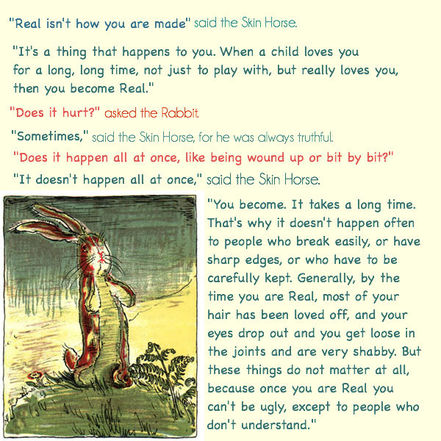
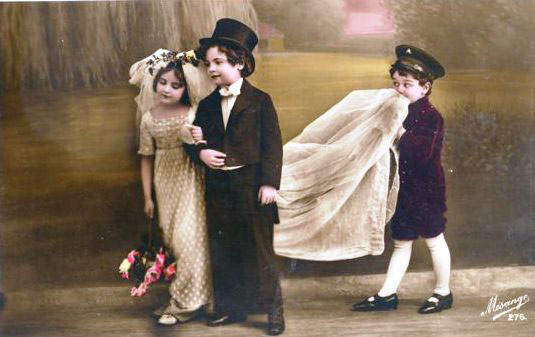
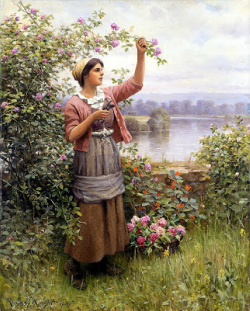
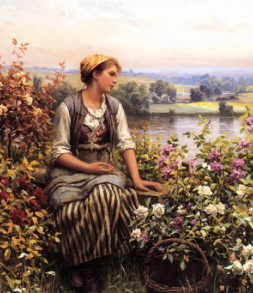
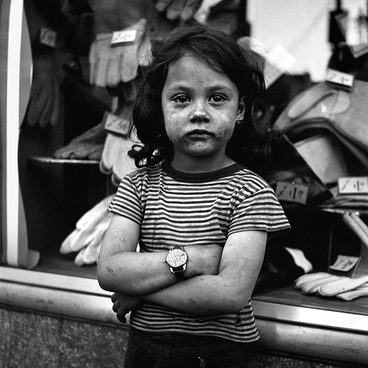
 RSS Feed
RSS Feed
